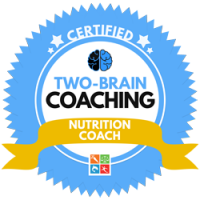[vc_row][vc_column width=”1/1″][vc_single_image image=”1023″ alignment=”center” border_color=”grey” img_link_large=”” img_link_target=”_self” img_size=”large”][vc_column_text]
A 2018 Diet Trends Year in Review
Like fashion and fitness, every year new diet fads emerge claiming to offer new and effective, maybe even revolutionary, ways to eat.
But the fact of the matter is, when it comes to diet, even though these ‘new (and exciting) diets’ pretend to re-invent the wheel, they’re never do. And they certainly didn’t this year.
Yet again in 2018, the popular new revolutionary diets of the year are but offshoots of other once popular diets from the last decade and beyond.
Let’s take a look at a few of the most notable ones:
Flexitarian
A new word indeed, a flexitarian is a vegetarian who eats meat here and there. In other words, this is a vegetarian who cheats when the temptation to eat delicious meat gets the best of them. These cheaters have been around, understandably, for years. Giving themselves a name seems but a way to justify their cheating…
Intermittent Fasting
Intermittent fasting burst onto the scene in a big way this year. Generally speaking, a true intermittent fast means you’re fasting for 16 hours to 24 hours; however, many ‘intermittent fasters’ of 2018 skip breakfast and call it a fast. Breakfast skippers have always existed, despite the old school advice that says “Breakfast is the most important meal of the day.”
As for true intermittent fasting, this is potentially one of the oldest ways to eat. Look back to our ancestors; they were forced to intermittent fast due to their hunter-gatherer, feast or famine lifestyles.
All that being said, there might be some sound science behind the concept of fasting. In fact, the media reported on various studies in 2018 that looked at potential benefits of intermittent fasts, including this study (https://content.iospress.com/articles/nutrition-and-healthy-aging/nha170036) published in the Journal of Nutrition and Healthy Ageing in June and conducted by a team of researchers from the University of Chicago.
The above study claimed intermittent fasting is a helpful way for people with obesity to lose weight. It examined at people who intermittently fasted for 12 weeks. By the end, they had all lost weight and many had lowered their blood pressure.
As a fan of intermittent fasting myself, I started in 2012/2013, I find that skipping breakfast and not breaking my fast before 11am daily (regularly later) has helped me be more focused and alert during the earlier parts of the day. Whilst I’ve tried many versions, including 1,2 and even 3 days fasts, I find that the daily skipping of breakfast is the one that works best for a normal lifestyle.
Macronutrient Counting
People’s minds have been blown far and wide by the wondrous world of counting your macros. Seriously, the number of apps that exist to help you count your macros boggles my mind!
If you think about it, though, this is basically akin to counting calories a la Weight Watchers, or maybe more accurately to the Zone Diet that was popular 10 years ago, which breaks food into blocks based on the number of grams of protein, carbs and fat it has. In this case, you’re not counting blocks, per se; you’re counting grams of each macro nutrient. In other words, it’s simply just portion control! No shit this diet works.
If you’d like to go down this route we’d suggest using the app MyFitnessPal and speaking to one of the coaches who can help you set your calorie and macronutrient targets (as the app is quite poor at doing that).
Ketogenic
Keto, keto, keto. All the cool kids these days are “keto!”
But are they really?
Again, this is basically the Paleo Diet, or the Adkin’s Diet re-packaged with a cool name, and it suggests your body is in ketosis. For most people, though, this likely isn’t the case. True keto means you’re eating between 20 and 50 grams or less of carbs a day. This is next to nothing!
Most people who claim to be keto are perhaps eating less carbs than they used to, but I would put money on their bodies not being in ketosis. Just saying.
That being said, I’m not opposed to “keto.” It gets you eating healthy fats and proteins and limiting bad carbs and processed foods, which is a quick way to lean up. But a new concept it is not.
MIND Diet
This one is a mouthful: Mediterranean-DASH Intervention for Neurodegenerative Delay).
The idea here is if you at this way you will have a 53% less chance of developing Alzheimer’s disease, they say. It also claims that eating this way helps blood pressure and heart health.
Basically, though, this diet is similar to the Mediterranean and DASH heart-health diets. This means you’re supposed to eat similarly to people who live in and around the Mediterranean sea—fruits, vegetables, healthy fats from fish and nuts, along with lean proteins and whole grains. The diet also outlines specific brain healthy foods, including leafy green vegetables, nuts, berries, whole grains, fish, poultry etc…,and tells you to stay away from things like processed foods, dairy, sugar and sweets.
More or less this diet can be surmised as, once again, as just a common sense way of eating with an important-sounding name.
To sum up, pretty much all of the above 2018 diets promote the same thing, but in slightly different ways. All promote whole foods, healthy fats and proteins, and tell you to stay away from processed foods, refined carbs and sugars. And, of course, the idea is to eat an appropriate amount for your body.
At the end of the day, do you really need to place yourself in one of the above boxes in 2019?
Or might it be time to abandon a short-term diet and just start eating in a common sensical way 90 percent of the time?
If you’d like some help with your nutrition, speak to one of your coaches.
Food for thought to start 2019 out right. [/vc_column_text][/vc_column][/vc_row]


